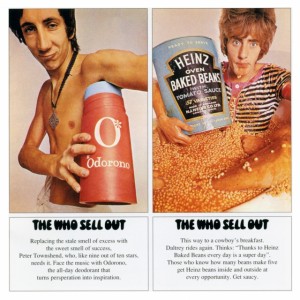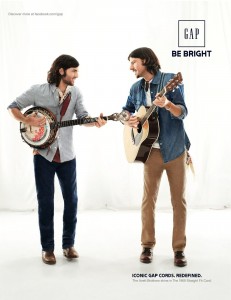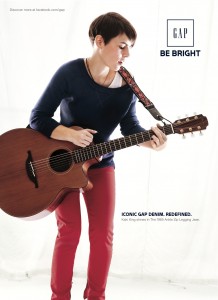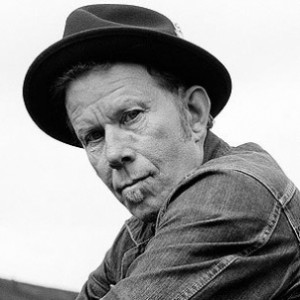Sell-Out: Is Music Licensing The Saving Grace For Artist Income?
posted in: Music News • Pop • Rock
 Let me just bypass the whole “record industry is failing” and “illegal downloading is on the rise” introduction. We all know that professional musicians need to get paid, but this means finding new means of doing so other than record sales and royalties. Over the past 5 to 10 years it has become increasingly apparent that music can be used as a marketing tool”one that can help sell products by adding a coolness factor or a down-to-earth credibility to advertisements that says “hey, we know what you like.” In the past, allowing your music to be used in advertisements or by big corporations for financial gain was known as “selling out.” Now it seems like this might just be survival.
Let me just bypass the whole “record industry is failing” and “illegal downloading is on the rise” introduction. We all know that professional musicians need to get paid, but this means finding new means of doing so other than record sales and royalties. Over the past 5 to 10 years it has become increasingly apparent that music can be used as a marketing tool”one that can help sell products by adding a coolness factor or a down-to-earth credibility to advertisements that says “hey, we know what you like.” In the past, allowing your music to be used in advertisements or by big corporations for financial gain was known as “selling out.” Now it seems like this might just be survival.
Let’s face it, we live in a capitalistic country with an economy based around consumerism. (That’s why our faces are pummeled with ads every two seconds.) Companies need to sell, sell, SELL!!! Unfortunately, in order to live a somewhat sustainable life as a professional musician, artists must do the same. Since they can no longer depend on the sales of their own intangible intellectual products, many musicians (if they’re lucky enough) are looking to licensing deals to get their songs featured in commercials, movies, video games, etc. Not only do these deals often pay well, but they also serve as a promotional tool for the artist by getting their music out to a broader demographic of potential new fans, which in turn will hopefully bring in more money in the long run.
This is a dilemma I’ve been thinking about for a while, but what really made it stand out to me were two GAP commercials that I saw while waiting for some YouTube video to load (probably “Gangnam Style” or something involving cats). These commercials each featured performances by two of my long-term favorite indie acts, Kaki King and The Avett Brothers. Of course, they’re not so “indie” now since many people have probably heard of them, but as someone who has listened to these artists for years before their recent mainstream success (please excuse the seemingly “hipster” attitude there, that’s not my intent), you can imagine my surprise when I saw this:
Followed by this:

 Needless to say, my inner punk was at a loss for words (pun intended for any pop punk fans out there). As someone who has always been about “sticking it to the man” and never “selling out” and always staying true to artistic integrity, my gut reaction was to recoil in disgust and reconsider my opinion of these musicians… but of course, in this day and age that response is somewhat irrational. After that initial moment of shock had passed, my next thought was “Wow, good for them!” because I knew it meant they were making more money, gaining more exposure, and ultimately moving up in their careers. We should all want what’s best for the musicians that we love, right? And if we still love their music who cares what they do with it?
Needless to say, my inner punk was at a loss for words (pun intended for any pop punk fans out there). As someone who has always been about “sticking it to the man” and never “selling out” and always staying true to artistic integrity, my gut reaction was to recoil in disgust and reconsider my opinion of these musicians… but of course, in this day and age that response is somewhat irrational. After that initial moment of shock had passed, my next thought was “Wow, good for them!” because I knew it meant they were making more money, gaining more exposure, and ultimately moving up in their careers. We should all want what’s best for the musicians that we love, right? And if we still love their music who cares what they do with it?
Well… I can think of one person actually… One of my biggest heroes and a pioneer of indie music, Tom Waits has always been against commercial use of his art. This is a well known aspect of his reputation. Whenever the concept of selling out or music licensing comes up, I am always reminded of a couple of his famous quotes:
“Apparently, the highest compliment our culture grants artists nowadays is to be in an ad”ideally naked and purring on the hood of a new car. I have adamantly and repeatedly refused this dubious honor… While the court can’t make me active in radio, I am asking it to make me radioactive to advertisers.”
“Commercials are an unnatural use of my work… It’s like having a cow’s udder sewn to the side of my face. Painful and humiliating.”
 Mr. Waits has a point here. It can often be degrading or superficial when a company uses a musician’s personal artistic expression or their likeness to push something completely separate and not directly associated with that artist’s intentions. But of course, this decision is usually up to said artist. And desperate times call for desperate measures. If Kaki King and the Avett Brothers like the GAP, then good for them for working with a company they support. When you combine art and commerce, there will always need to be compromises. The question is, musicians, as money gets tighter, how much are you willing to sacrifice for the integrity of your art, and how much are you willing to bend for the payoff? It is a delicate balance, and there is no one-size-fits all answer. To each his own.
Mr. Waits has a point here. It can often be degrading or superficial when a company uses a musician’s personal artistic expression or their likeness to push something completely separate and not directly associated with that artist’s intentions. But of course, this decision is usually up to said artist. And desperate times call for desperate measures. If Kaki King and the Avett Brothers like the GAP, then good for them for working with a company they support. When you combine art and commerce, there will always need to be compromises. The question is, musicians, as money gets tighter, how much are you willing to sacrifice for the integrity of your art, and how much are you willing to bend for the payoff? It is a delicate balance, and there is no one-size-fits all answer. To each his own.
More Like This:
- Licensing Landscape
- The Avett Brothers: New Album The Carpenter Streaming On NPR
- Tuesday, August 28, 2012
